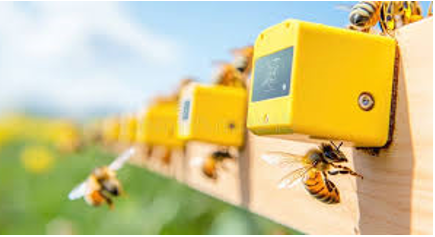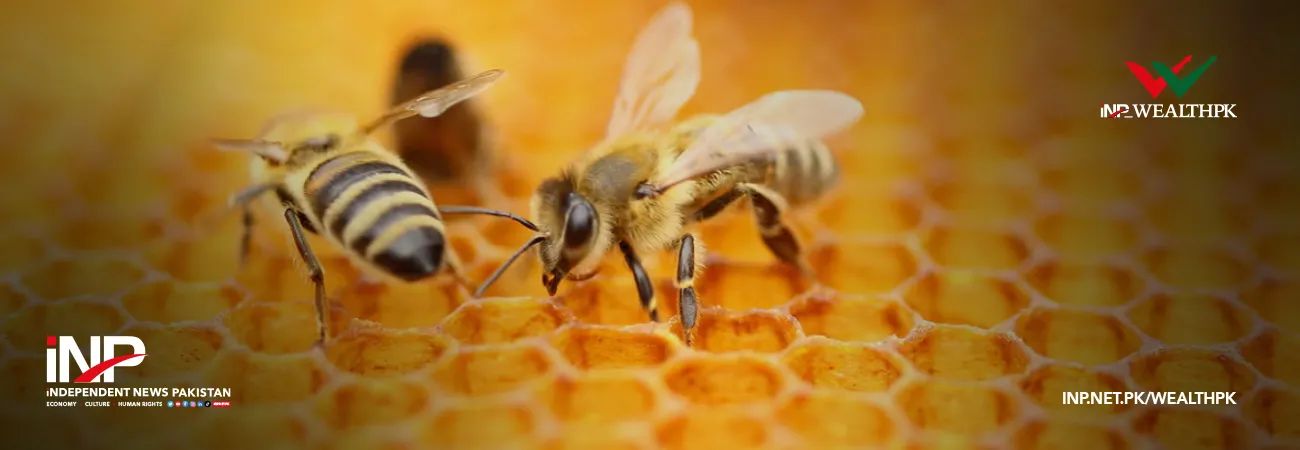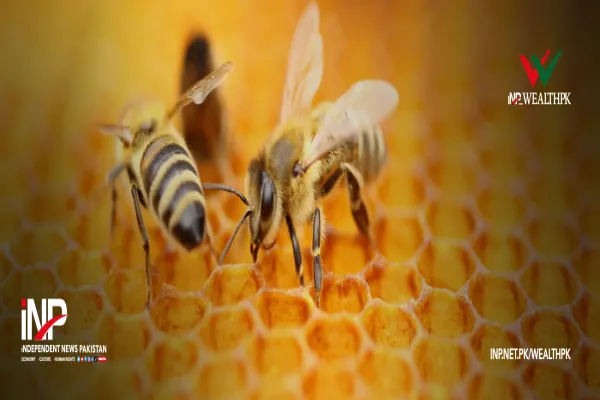i INP-WEALTHPK
Faiza Tehseen
Pakistan’s quality honey is not in high demand in the international market due to the lack of international standard certification and packaging, opined Nazir Hussain, President of the Pakistan-China Joint Chamber of Commerce and Industry (PCJCCI), in an exclusive chat with WealthPK.

“Despite its superior taste and competitive price in the international market, Pakistan’s honey sells at as low as US$20-25 per kilogram, though a kilo of it can fetch US$100 per kilogram if processed according to international standards, he said.
To bring Pakistan’s honey sector on a par with global standards, he emphasized the need for establishing internationally accredited laboratories and large-scale honey processing facilities countrywide.
“Pakistan can get Chinese coordination to establish advanced units of honey filtration, packaging, sterilization, and temperature control,” he said.
The PCJCCI president further said, “China’s robust certification and lab infrastructure can be a role model for Pakistan. Joint ventures with Chinese companies can fast-track the establishment of modern testing labs to enhance both production and export capacity.”
Highlighting the untapped potential of Pakistan’s honey market, he said, “China is one of the largest honey importers globally, and Pakistan can export a good quantity of honey to China by adopting smart processing.”
Pakistan exported US$6.351 million worth of honey to Saudi Arabia from July to November 2020. The market net can be expanded to other global high-value markets, including Europe. Currently, Pakistan produces 20,000 tons of honey annually. This quantity can be increased through authentic certified exports.
Talking to WealthPK about a coordinated technological partnership to enhance honey production and exports, Muhammad Naveed, Assistant Director at the Punjab Agriculture Department, said the honey produced in Pakistan lags at international platforms despite the fact that the country has a diverse flora and a favourable climate for the production of quality honey.
“The major cause is the lack of modern processing facilities, quality testing laboratories, and efficient supply chains. To bridge this gap, Pakistan can get Chinese coordination to share expertise about value addition, product standardization, quality assurance, residue monitoring, traceability remains, and marketing tactics in the international market.”
Naveed said many other countries are also interested in buying organic honey from Pakistan, particularly the one derived from sidr, acacia, and citrus trees. To live up to the set standards, Pakistan must have smart honey processing and export hubs, he added.
The government can attract good investment in this economic sector through public-private partnerships, offering incentives to adopt modern beekeeping techniques, including AI-based hive monitoring – a modern technology gaining popularity in parts of China.
Credit: INP-WealthPk








